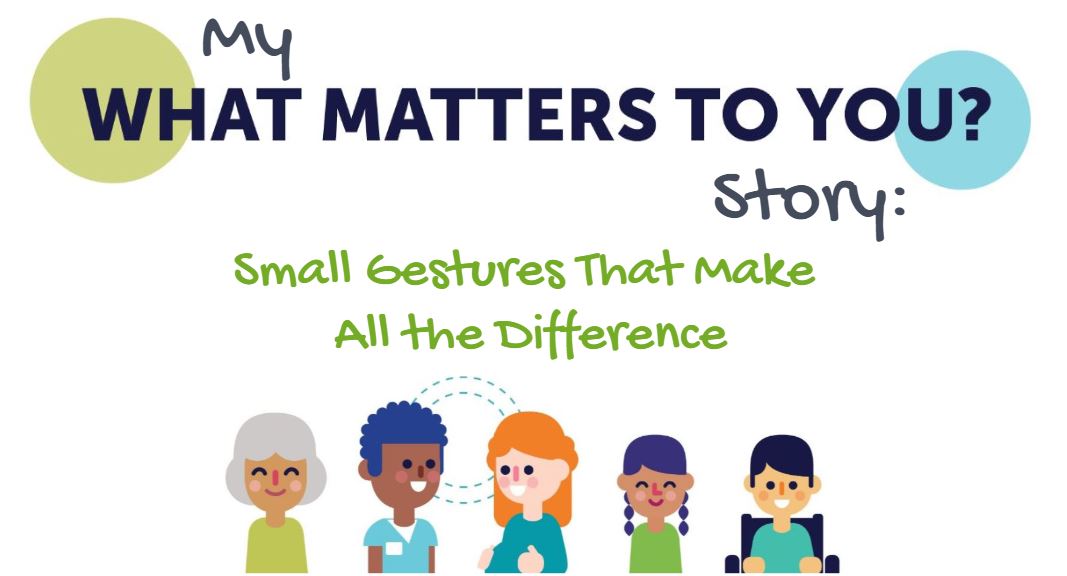Posted • Last updated
Categories: My Experience
If you or a loved one have ever been sick and in need of care, you’ve probably felt the fear and anxiety of not knowing exactly what was going on and what the treatment would be. And you’ve probably felt relief and comfort if your health care providers made a point of including you in all care decisions. That’s what our patient partner Kyle Warkentin felt during his mom’s care experience, which he shares with us in his “What Matters to You?” story.
Getting sick leaves us vulnerable and sometimes even helpless. When in the care of others, we’re at our most fragile state, and with that, hospitals can be a scary maze of pathways and corridors. As a family member participating in my mom’s care, I was greatly appreciative of the way the care team interacted with my mom and me to avoid that fear and anxiety. They ensured that we were involved in all of her care decisions.
I remember being taken with happiness and a sense of calmness when my mom was asked if there was anything she needed – it was the smallest gesture that made a world of difference, because it shows true empathy and compassion towards the patient. From that point forward, that little gesture gave us all the confidence in the world that she would get through her fragile time in the hospital.
For patients, it’s mostly the small things that count – the friendly smile; the “hello;” the “how can I help?”; the introducing yourself by name; the talking to me, not down to me – all these simple, quick gestures that ensure a patient feels included and comfortable enough.
Studies have proven that those in vulnerable states, such as patients in hospitals, are more likely to be honest about their actual state of health when they feel comfortable compared to those who do not feel comfortable. The importance of eliminating this discomfort and anxiety in health care is especially vital because it scares some patients so much, that it creates barriers to access health services and reduces opportunities for growth and recovery.
The importance of human connection and humility is key to my “What Matters to You?” story – my mom would never have recovered so well if she had not been addressed with the simple words of “how can I help you?“ That is why the mission of “What Matters to You?” is so important: it ensures that the patient is in control of their well-being, and instills a sense of trust between the health care provider and patient, ultimately improving recovery.
Share what matters to you, too!
“What Matters to You?” is an initiative with a simple premise: every time a care provider meets with a patient or client, they should include the question, “What matters to you?” This question can be asked in different ways – for instance, “What are some things that are important to you right now?” and “What can I do to best support you in your care today?” No matter how it’s asked, the purpose is to establish a relationship, build trust and understand the patient as a person in the context of their life. Rather than reducing someone to their health condition, “What matters to you?” opens up the discussion to make room for that person’s hopes, dreams, goals and desires.
We’ve encouraged health care providers and patients to have “What matters to you?” conversations every day over the past year. Now it’s time to celebrate the genuine partnerships these conversations helped form on “What Matters to You?” Day on June 6, 2019! You’re invited to celebrate with us: share your “What Matters to You?” story in the comments below, join the conversation on Twitter using the hashtag #WMTY19 or talk to your friends and family about it!
Learn more about the campaign with resources, and join us on a webinar on June 6, at 8 am, to learn from our international partners how asking “What matters to you?” has helped improve the patience experience in organizations around the world. Add the webinar to your calendar!
Author: Kyle Warkentin


